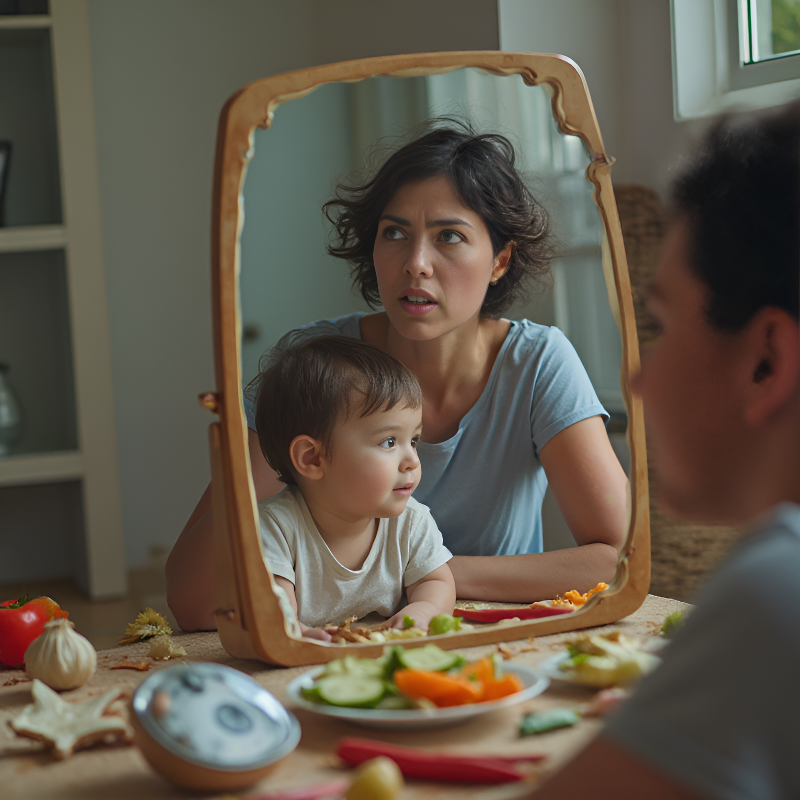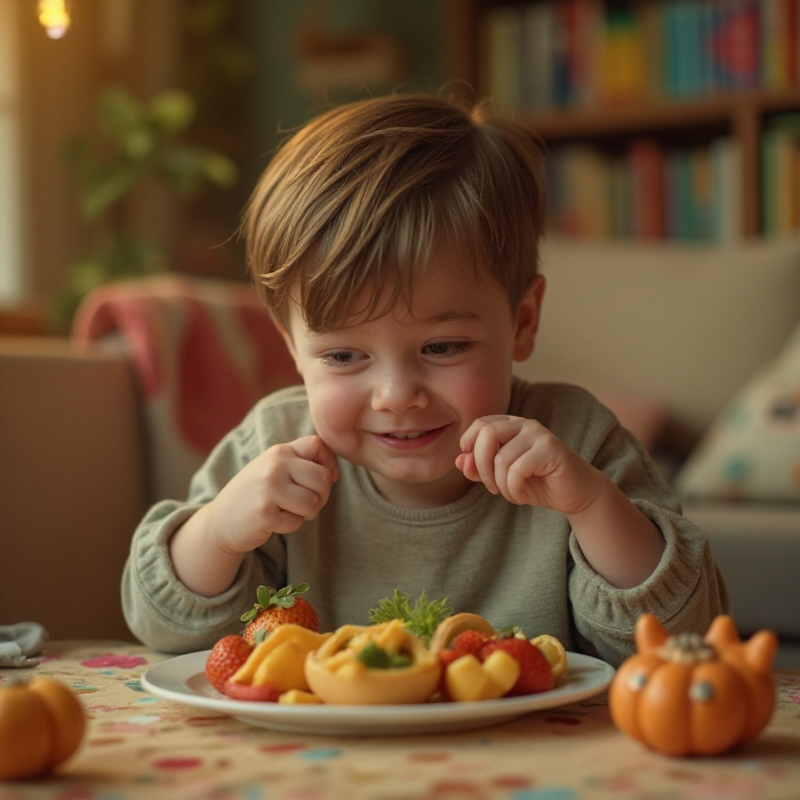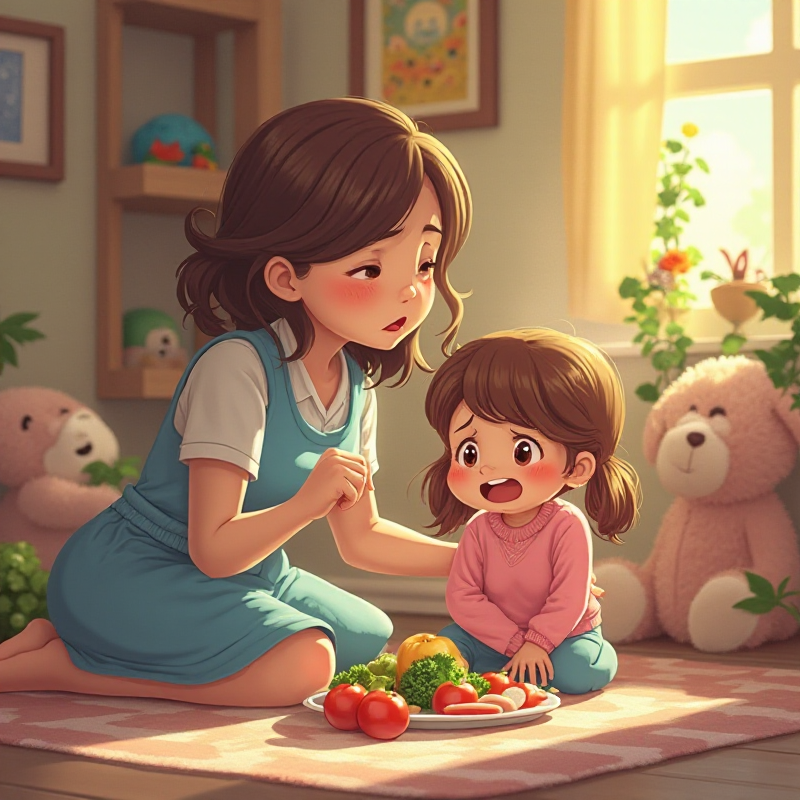How To Identify Potential Eating Disorders In Your Child Today
How To Identify Potential Eating Disorders In Your Child Today
How To Identify Potential Eating Disorders In Your Child Today
**Eating disorders in kids** can sometimes show up in small ways that might not seem important but really are. Finding out what’s going on early is really good,though, because it helps to step in and make things better. Kids don’t always say how they feel or why they not eating properly. It might begin with a kid not wanting to eat some foods or always counting calories. Parents might think its just normal kid stuff. But when these behaviors take over there day, it’s vital to notice.
Also, things kids watch online or on TV can make it an bigger problem, making them think what’s important is how they look. Kids see a lot of stuff on social platforms that makes them think beauty is just looking thin, and, it can make how they see true health wrong. Knowing these things can make kids worry a lot about what they eat or how much they weigh is key. Parents can talk to kids about how all body shapes are nice and make healthier chats about food . Like why can’t kids learn that beauty comes in all sizes? making a safe space where kids can talk open about what bothers them or makes them sad can help.
**Noticing Changes in Your Kid’s Behavior**
Changes in how a kid acts might be one of the first signs that something’s going wrong, such as struggling with food. Do you see your child being secretive when they eat? This might tell us something’s not right. Notice if your kid stops wanting to eat with others or starts skipping meals; it might be more than just a passing phase. Do these changes say they’re unhappy with what the see in the mirror, or, unhappy with what they eat?
Watch for when a cheerful kid turns anxious when food is around. They might start getting very into diets or exercise, worryingly counting every bite . Talking with them openly helps; they need there parents not to judge. Talking plain about how there’s feeling without making them afraid helps lots. Noticing these small hints lets make things better before it’s too late.
**Keeping an Eye on Eating Habits**
Keeping track on a child’s eating likes and dislikes is a good way to know how they’re feeling inside. Have you seen changes in what they want to eat? Has their started focusing a lot on calories? Instead of just seeing what they eat, ask them about their food choices, like “Why do you like the food you pick?” This makes a nice and open space and helps see if food is the issue or not.
Also, think about how habits happens. Are they eating food in secret or look worried during meals? Those clues say a lot about there feelings and troubles . Making a space where talking about food or choice is ok helps them share what scary’s them. Thinking about these little things early makes it possible to help, do you think you can notice these so early?
Recognizing Body Image Worries
How kids see themselves can be hard for their happy mind. Listen to what they say about looking or what they think is beautiful. If they’re upset about is disturbing, listen. What if your talks about different body types helps them think better? Watch their actions with exercise and eating. Are they tracking too much exercising habits as not, really not! Help them feel beauty is within everyone. Can this not encourage them to speak and steer clear from making them get worried, we never know.right?
Do you reckon being open about these topics make a space for kids that stays clear of pressure by outsiders? If they feel safe, they might just share what they’re fearing. With such chill vibes, isn’t it more easy to chat and maybe why do kids worry so much when it doesn’t need to be such an troubling subject? These changes you see in them, how can focusing on them early not be worthwhile or what do we feel,our youth burdens need such understanding?
Helping your kid deal with the push they might feel from pals and TV stuff? Doing this will help catch any food worry problems early but also makes your kid strong happy in their own body.
Spotting Feelings Triggers and Stress Worries
Knowing what makes feelings pop up and stress is super important when looking at food issues in kids. Sometimes these start from places like school work mess, friend stuff, or even family hopes. Your child might not say what they’re feeling, but noticing when they act different—like not wanting to hang out with mates, or their mood jumping around—can give big hints. Don’t we all want to create a chill space for kids to talk about feelings without Judgement?
What about the big picture in your kids life? Things like phone app posts can make them feel like not enough or make them compare too much, making them super emotional. How can you help your kid deal with this? By building them up and showing them good ways to cope. You could try fun things that boost self-confidence and love-your-body vibes, these are like magic against outside mess. What if you could catch these feelings things early? Could you give your child the skills for better food and body happiness?
Noising Social Hideaway or Lonely Times
Does staying away or being alone mean there might be a sign for food issues in kids? What if a kid who used to love being with friends starts wanting to be alone, skipping on meals with others, preferring to be solo? Little things like not eating with friends or saying “no, thank you” a lot could mean a storm inside. Would touching base with your child here stop this slide or would understanding if things are more serious than silent privacy is key here to cracking self-worth or worry about food.
Parents, we gotta see that this need for space might not just be a wish for alone time but a deeper self struggle too. Could a child full of stress from people and showing love marks (likes/heart pics) and not love hide away? How do you talk to help them out, maybe bringing in chats about what’s going on could mend this hard period, making them feel ok about sharing. Noticing these changes in a caring way can start healing a battle inside around food and how they see themselves.
Role of Friends Tell
Friends have a big voice in shaping how our kids see fancy body size and eating stuff right? Small people often see pals for good job nods, could this lead them to compare and do stuff that’s not great? Like if your kid’s around chums who say skinny is good or do this diet Skip eat stuff, do they feel they gotta follow? Would knowing who your kid hangs out with matter? Because these talks in there group can really change them.
And then there’s the online mess—where everyone’s snaps are always filtered and just best perfect. Our kids see this all the time. Is this how they get their what-I-should-look-like thoughts? Could there be talks with your kid about what’s online be what helps them think better about themselves against these pushes? What if you and the kid Aim to talk about bodies and that every looks are nice in their own way, can they see it’s not all real, and not fall into ‘I must think same’ trap?
Looking for Expert Help and Supports
What if your kid is showing signs of an eating issue, are you feeling unsure about on-time for calling an expert? If your child’s mood, food routine, or social nature changes in patterns you can’t ignore, would you call someone good with food troubles? What you’ll find is they’re ready to give personalized advice plans touching on both mind and body worries. Let’s face it, and asking for help quick can change the beginning steps forever in a good way, don’t you agree? What might be the reach out you need?
Think about joining groups, community or finding books and videos to help you with tough things like eating problems. Ever wonder how talking to other parents who gone through same stuff can be pretty good for feelings and tips? Groups like the National Eating Disorders Association got lots info—stuff like phone numbers and online chats—where you can learn more ’bout your kid’s problem and how to give them a hand. Getting everybody in the family involved, especially the little ones, and listening to them can help them feel courageous and make their road to getting better a bit hopeful.
Stepping Up for Your Kid’s Well-being
Trying to help your kid’s well-being means making home feel like a place where talking is easy. You think it’s good to let your kid talk ’bout what they think ’bout food and body without worries? It not only helps in seeing what bothers them but also builds trust, so they feel they can let you in on their troubles. Sitting for meals together often can work wonders to show normal eating ways and a cozy family vibe.
Plus, acting in a good way ’bout eating and body stuff is super important. Kids often look up to how parents act, so living balanced helps. You ever heard, not to just think ’bout weight, but more ’bout feeling good with movement? Trying new foods or doing fun exercise together—even if it’s small—can make you feel proud and healthy with eating and moving. Doing stuff now helps keep your kid’s health good and their feelings strong when rough times come.
Homeopathic Medicine for Kid Eating Problems
Homeopathic medicines could be a kind soft way to deal with eating problems with children, attacking the mood reasons not just the signs. Things like *Natrum muriaticum*, often told for worried eating kids, could make them feel less tense. Also, maybe *Ignatia amara* can help those who are sad and stress eat. Its aim is making food feel better.
You know homeopathy works by fixing the whole person, not just the problem right? This way lets you find what helps there unique feelings and problems. Working with someone who gets how this all ties together, can give a clear view on what makes your kid eat in certain weird ways, letting them learn and get strong. Mix this gentle treatment with supportive chats and family talking, can create a good place that makes healing and healthy eating quite reachable.
To wrap it up, catching signs that your kid might have eating problems soon is super important to give help early. Checking how they eat, feel and hang out can help make food a friendlier thing. Having easy talks and letting them say stuff without worry can help them voice worries. Maybe it’s key to check in with a pro if you think an eating fear is coming up. Don’t shy away from getting help—taking these steps might just change your kid’s life a bit, doncha think?










Leave A Comment